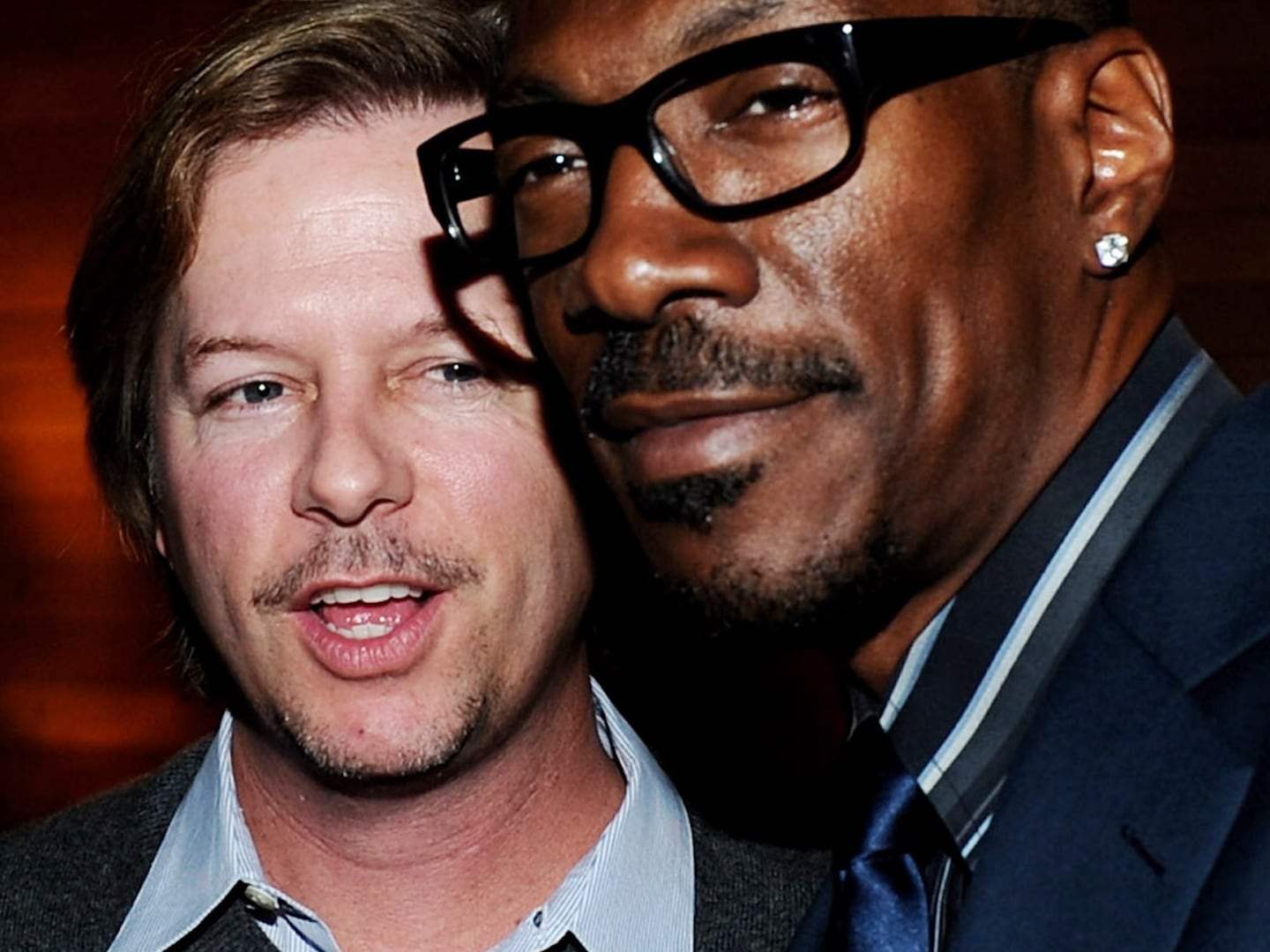Fellow fans of engrossing subtitled shows, rejoice: Borgen is back! Or, more accurately, an updated version of Borgen is back!
Netflix debuted eight episodes of the twisty Danish political drama Borgen: Power and Glory on June 2, so whether you’re a veteran fan or brand-new to the ongoing adventures of Birgitte Nyborg, now is a perfect time to dive into the most popular Danish show that is not a grim-yet-gripping police procedural.
What is Borgen? And why should I be watching it?
Borgen is a Danish political drama following the life and career of Birgitte Nyborg, Denmark’s first (fictional) female prime minister. Borgen itself is the nickname of Christiansborg, a former palace that now functions as the home of the Danish parliament. The original series ran from 2011-2013, building a significant audience throughout Scandinavia, and doing the same in 70 other countries including the United States.
Although Borgen’s success outside of Denmark took star Sidse Babett Knudsen by surprise, we can attribute some of that success to good timing as much as to its quality. When the show debuted in 2011, TV and film adaptations of Nordic Noir novels were enjoying an early peak of popularity. Across books, film, and television, the genre continues to intrigue readers and viewers alike, prompting recommendation round-ups like 10 Icy Nordic Thrillers to Get You Through The Winter. Borgen is not a police procedural, but thanks to similar story beats and the Scandinavian setting, it scratches the Nordic Noir itch for many.
Early in the series’s original three-season, 30-episode run, critics compared it to The West Wing, but Borgen also boasts a few of Scandal’s soapy flourishes, and its storytelling is more episodic than serial. In addition, Borgen is not solely a political drama, but a very 21st century family drama about the effects of a suddenly high-flying career on the personal life of a woman who never anticipated becoming prime minister.
When Borgen opens, Birgitte is the leader of the Moderate Party (one of four centrist parties—yes, Denmark’s most thrilling political action is in the middle) hoping to re-secure her seat in Parliament, but otherwise intending to pull back on her career after several years of intense, demanding work, so that her husband Philip can have a turn pursuing his professional ambitions more fully.
When Birgitte unexpectedly has the opportunity to become prime minister, swiftly learning how gifted she is at wedding her idealistic politics with a lightly Machiavellian shrewdness, she develops an appetite for both personal power and the ability to make substantial policy changes to help her fellow Danes.
Borgen is very much a work-life balance show. Because it’s not an American series, it tends to come down on the rather bleak side of telling viewers that work-life balance for women means that you can either invest your talents and energy in work or in your family life. There’s no successful combination of the two, and you will be forced to choose.
Thinking—sincerely and incorrectly—that she can figure out a way to have it all, Birgitte tries to choose both. Unsurprisingly, Birgitte’s marriage, her children’s mental health, and their relationships with her all suffer. Unspoken is the foundational assumption that the good of the nation will come before the good of the individual person or specific family. In part because it is unspoken, the pain everyone in her family feels is all the more intense.
It’s as riveting as it is sobering, especially from our vantage point in the U.S., which has the merest wisp of a social safety net compared with the paid parental leave and socialized healthcare system that we often romanticize when thinking about Denmark.
Will I be able to keep up with Borgen: Power and Glory if I haven’t watched the original series?
As a completist, I would say that you’ll miss out on a bit of in-show historical texture and nuance if you dive right into the new series. But as a realist, I’d say you’ll be just fine; there are some moments in the first episode where the full significance of the characters and their interactions might not be apparent if you don’t already know characters like journalists Katrine Fønsmark and Torben Friis, or political shark Michael Laugesen.
But because the new episodes pivot so quickly to the main series-long plot about oil in Greenland, that feeling of “wait, should I know who these people are?” will dissipate pretty quickly.
Sounds great, but will I be able to keep up if I don’t know all of the specifics of the Danish political system?
Because Borgen was created for a Danish audience with lots of first-hand and ambient knowledge of Denmark’s specific social and political culture, its exposition is pretty brisk—but you’ll get your bearings quickly. Remember, Borgen is popular entertainment designed to hook and hang onto its audience, not an experiment in challenging narrative devices.
All you really need to know going in is that, unlike the United States’s two-party system, Borgen’s Denmark is home to seven political parties with seats in parliament. Coalition governments of two or more parties, rooted in complex compromises and horse-trading, are the norm, and much of the show’s political drama arises from fine-grained policy disagreements across several parties jockeying for power and influence. That should be as engaging as watching paint dry, but it’s a mark of how good both the writing and acting are that it’s engrossing.
As in other popular politics-and-people shows like The West Wing, Scandal, House of Cards, and The Crown, each episode of Borgen gives viewers a peek behind the curtains of power, allowing us to see both Birgitte’s increasingly polished, assured public face as she addresses or emerges from a crisis, as well as the often-frantic scrambling behind the scenes that comes first. Consequently, we also spend time getting to know the personal and professional lives of the journalists who cover Borgen and all its wily operators.
I loved Borgen, but I thought it had concluded its run. Is this a reboot?
Borgen: Power and Glory is less of a reboot, and more of a revisitation. Borgen’s third season aired in 2013, concluding with some major storylines wrapped up, but left enough runway to make it feasible to revisit these characters and their situations some years later. That’s where Borgen: Power and Glory begins. In an interview with the BBC, series creator Adam Price has described it as a “reinvention”, and thinks of the latest batch of episodes as “a different chapter in Birgitte’s life”.
We could reasonably describe Borgen and Borgen: Power and Glory as very close siblings. If you’ve already watched the first three seasons of Borgen, you’ll immediately spot elements that are the same, and some that are wildly different or altogether new.
Borgen: Power and Glory picks up in 2021. The New Democrats, the scrappy center-left party Birgitte co-founded in Season 3 after losing the snap Parliamentary election she called at the end of Season 2, now hold enough seats to lead another coalition government. She’s the foreign minister, serving under another young female prime minister, Signe Kragh. Signe’s successful use of Twitter and Instagram helps her outmaneuver Birgitte here and there, but she’s not as seasoned as Birgitte, and less willing to throw an elbow publicly.
Of course, another way of framing Birgitte’s more extensive experience is to state flatly that she’s well into middle age. Over the course of the latest season, she’s increasingly thrown off her game professionally by struggling to cope with worsening perimenopause symptoms. She’s irritable and unable to maintain her trademark equanimity under pressure; hot flashes make her sweat so much that she keeps several extra blouses at her office to make it through the day looking…if not fresh, then at least not completely wilting. And we even see her plucking a stray chin hair here and there. Representation!
Birgitte is also more explicitly messy and ruthless than she’s ever been before. She refuses to hire a much-needed spin doctor, is not quite able to acknowledge that it’s not her place to orchestrate the overall direction and strategy of government policy and action, walks right up to the edge violating a law governing transparency among government ministers and of ruining negotiations with Greenlandic political leaders, and even gets so drunk she vomits copiously into her office trash can.
Equally messy at work is Katrine Fønsmark, the former investigative journalist who developed a friendship with Birgitte, eventually working with her in the New Democrats party. Katrine is still with her partner Søren Ravn, a leftist economist about 20 years her senior, who is managing their blended family life. Returning to TV1 as News Director, Katrine—who was a single parent herself in Season 3—now expects staffers with children not to have any responsibilities outside of the newsroom, a perspective that lands her in hot water with HR and the journalists’ union.
The West Wing liked to think of itself as a show about the best people doing the best work for the best country on Earth. Borgen knows that it’s a show about mostly-decent people doing the best they can under the circumstances for a pretty good nation that has a lot left to learn. That it does so by centering women who are ultra-competent in one area of their lives and total messes in others, women who find that past experience doesn’t promise future success, women with an awareness that they probably should feel more regrets than they do? That feels like a minor miracle.









